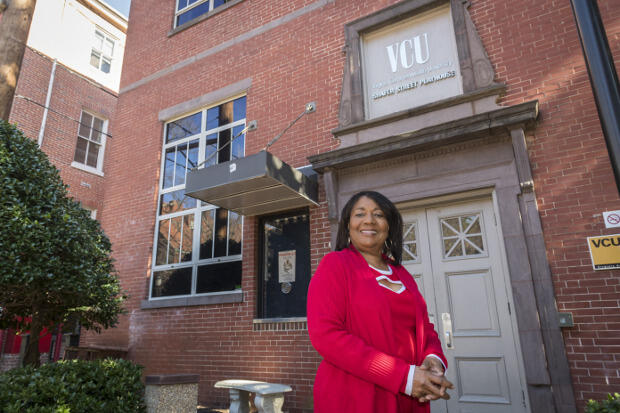
<br>Allen Jones, University Marketing
Feb. 21, 2017
Beatrice Wynn's election in 1966 as RPI's Harvest Ball queen attracted national attention
Share this story
Beatrice Wynn Bush decided to attend Richmond Professional Institute in 1966 because she was drawn to the theater department. She liked its assortment of courses and knew the program would offer a strong foundation for her to pursue her already avid interest in acting. However, she received a major shock when she stepped foot on campus. The department had not yet been integrated. She would be its first black student.
“When I figured that out, I got a little worried,” she said. “I wasn’t sure how it was going to work out.”
Bush’s experience was not an uncommon one. Integration at RPI and other similar institutions was not an instant or even swift event. Barriers deteriorated over time rather than being demolished all at once. RPI first admitted black students in 1951, as did the Medical College of Virginia, Virginia Commonwealth University’s other predecessor, but 15 years later academic pockets throughout the school remained all-white.
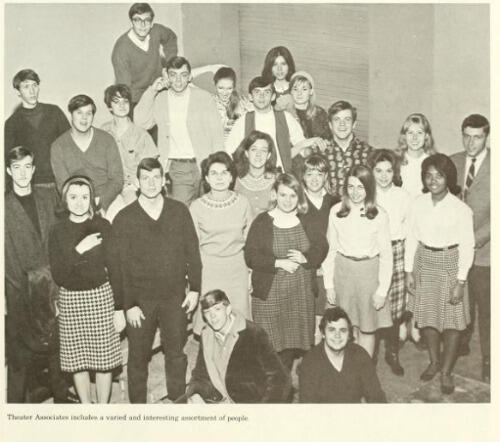
Bush, who spent her freshman year at Hampton University, quickly shrugged off her surprise and began to excel in her coursework. She also thrived socially. She became close with her fellow theater students and professors, who she said looked out for her with the protective instincts of parents. It was with the support of her theater peers that Bush would soon stun the campus, bringing national attention to herself and RPI. On a predominantly white Southern campus in the midst of the slow grind of integration, Bush became the first black student ever selected queen of the Harvest Ball, RPI’s annual formal dance. Her crowning would attract news coverage across the United States.
Today, as the country celebrates Black History Month, Bush remembers her role in VCU’s past with pride and fond memories.
“It’s definitely had a lasting impact on me,” Bush said. “I went to RPI never imagining that I would have that type of attention. It ended up being a remarkable situation. The part that really sticks out to me is the way that the department rallied around me. My classmates were overjoyed for me. And I’m still friends with a lot of them today.”
A candidate for queen
Mary Anne Moorman was one of Bush’s fellow theater students. Moorman had attended a private high school in Roanoke that formed when her local public school was integrated, and she had only attended class with other whites before Bush’s arrival at RPI. In fact, she had never been in a peer relationship of any kind with a black person. Her background was not unusual among Bush’s first classmates.
Moorman said Bush, or “Bea” as her friends called her, made it easy for her white classmates to set aside any awkwardness or ingrained prejudices. Bush was quick to smile and had a gentle personality with a rich sense of humor. Moorman remembers frequently sitting with Bush and other students, drinking coffee and telling “stupid” jokes that would send them all into hysterics. The group bonded over a shared passion for theater and performance.
“We were a very tight-knit group of people,” Moorman said. “We thought that we had a calling and Bea was right there with us.”
Bush encountered classmates whose generations-old ties to racist beliefs and practices were beginning to loosen, if slowly. The civil rights movement had proved eye-opening for many of them and the social upheaval of the late 1960s was entering its crescendo. “It was a time when it felt like the world was really changing,” said Lynn West, another of Bush’s classmates.
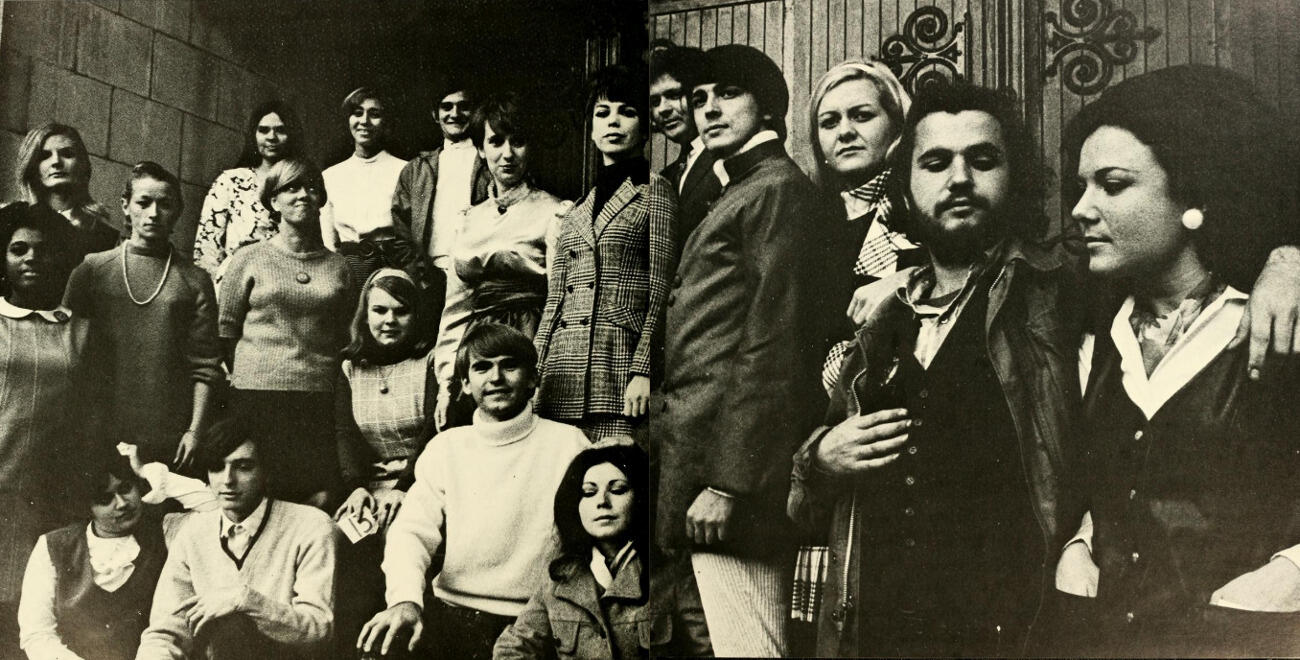
“Some of us were beginning to understand the reality that we had been entitled to some things that other people hadn’t been,” Moorman said.
In that atmosphere, Bush’s fellow theater students, led by Charles Massey, started a groundswell to elect Bush as the 1966 Harvest Ball queen. First, they voted to make Bush the official nominee of the theater club, an honor that astonished Bush at the time. Bush’s photo was subsequently placed at a central location with the other campus clubs’ nominees.
When that picture went up, there were people who were shocked to see it there.
“That was a big deal,” Moorman said. “When that picture went up, there were people who were shocked to see it there.”
Then the campaign began. The queen was selected by popular vote. Classmates canvassed campus to seek support for Bush. “Everybody in the department jumped behind her,” West said. “We thought we had a chance to do something special.”
Moorman was in charge of going door to door in her dorm at Monroe Terrace. Most of the students she encountered were open to Bush’s nomination, but she said a small percentage responded with harsh, racially charged language.
Someone complained about Moorman’s efforts, and she was called into a dean’s office to discuss “disrupting” students in their rooms. Afterward, the dorm’s house manager asked Moorman what the meeting had been about. When she told her, the woman replied, “Keep disrupting.”
Moorman emphasizes that the theater students’ efforts were not driven by a sense of fighting against something but rather fighting for something. It also was not about seeking a symbolic victory. First and foremost, it was about Bea.
“She was our friend,” Moorman said.
Bush herself stayed clear of the campaigning, though she knew her classmates were continuing to advocate for her. Because of their work on her behalf, she said, “I felt embraced.” Perhaps her favorite memory from the experience was meeting her classmates in the heady aftermath of learning of her election victory.
“I remember when I came to the theater that night all of the students were on the steps out front shouting and carrying on,” Bush said. “I couldn’t believe it. Everyone was just ecstatic.”
Moorman remembers a scene that was “electric” with students hugging each other and cheering and even crying. “She was our queen, and we were thrilled to be her loyal subjects,” she said.
“It was so joyful. It felt like some kind of turning point to us.”
News spreads of the coronation
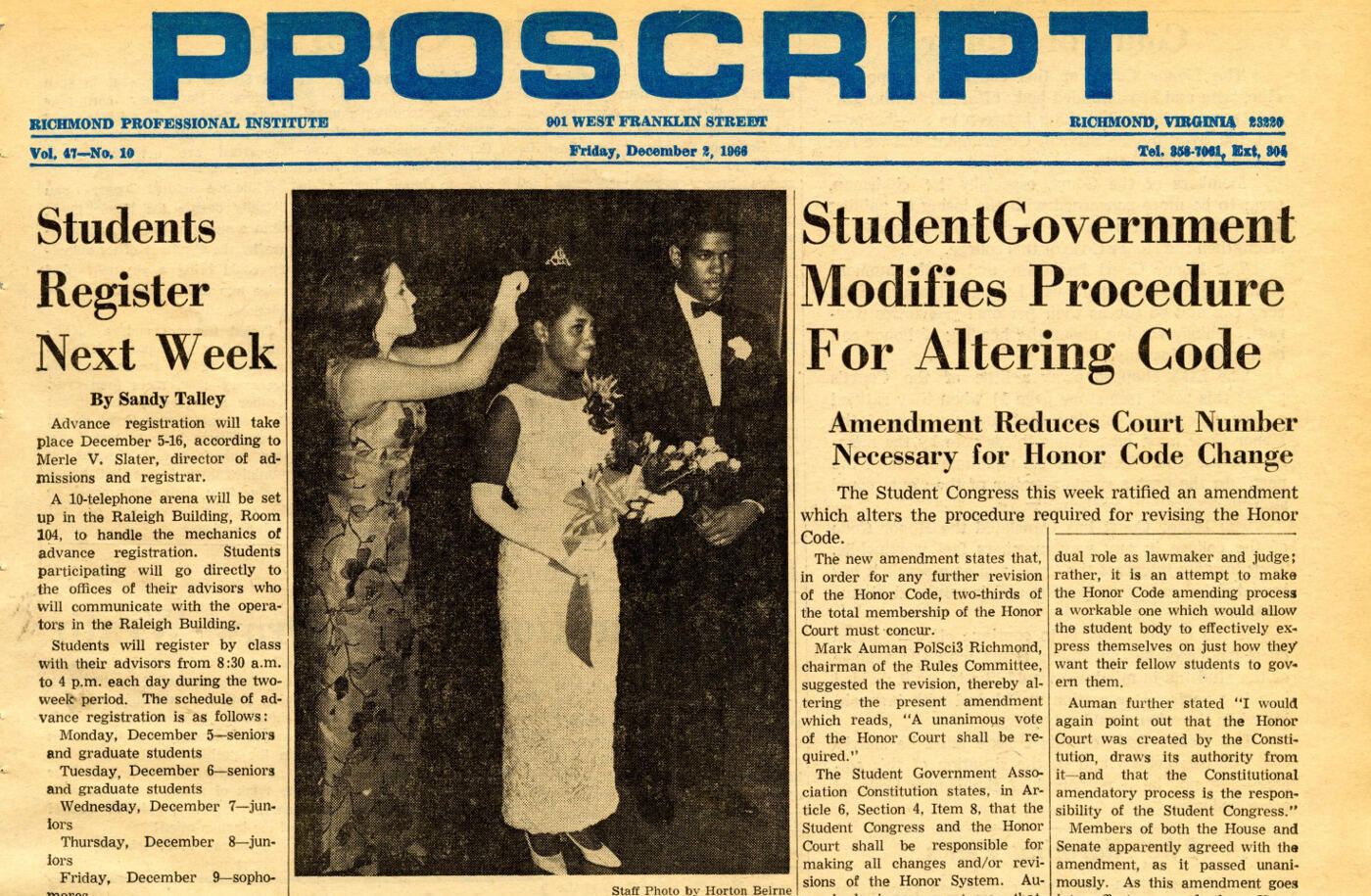
The Harvest Ball itself was held at the John Marshall Hotel on Nov. 22. Bush was not allowed to be escorted by Massey or any of the other white students from the theater program. Instead, a black student named Jeff Parker was recruited to serve as her escort.
Bush’s mother attended the dance, watching from a balcony, and Bush remembers having a great, glamorous time. West said theater students typically were not the type to go for fancy balls, embracing the role of campus misfits, but they made a point of sending a large group to that year’s event. The theater club’s treasury helped pay for tux rentals. Bush danced with her fellow students — both white and black — and was very much the center of attention.
It was only the beginning. The Richmond Times-Dispatch ran a photo the next day of Bush and CBS national TV news came to town to interview her for a segment. She also was featured in Jet magazine dancing with Massey. In addition, a small news item circulated via the wire to outlets around the country and was picked up from coast to coast.
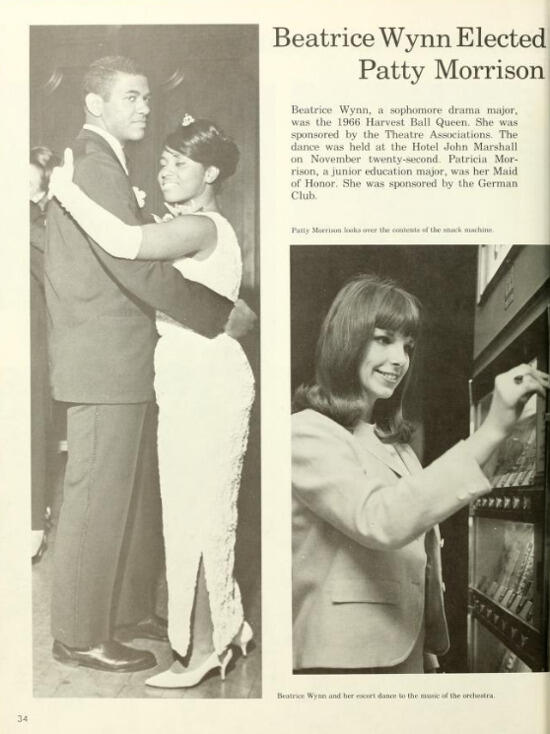
People from around the United States wrote letters to Bush in care of the theater department to congratulate her on the recognition. Some even sent flowers. Many praised her as a source of inspiration. Bush and other theater students would gather before class to read through the day’s new mail together.
“The letters were really uplifting and encouraging,” Bush said.
A highlight was a dispatch she received from a former high school classmate serving in the military in the Vietnam War. He’d been feeling especially lonely, he wrote to her, until he read about her honor in the Stars and Stripes newspaper and his mood transformed.
“He couldn’t believe it,” she said. “He was so excited to see my name there. He said he started yelling, ‘This is my classmate. I know her.’”
Although most of the letters were laudatory, Bush remembers one negative letter — a nasty one from Texas that used a racial epithet — that bothered her. More frighteningly, someone burned a small cross in the grass in front of the theater department. Bush said the culprit was never found, but she remembers the local KKK chapter denying responsibility for it.
“We were all upset about it,” she said. “But it happened. That was the only negative reaction in the city that I was aware of.”
Eventually, the excitement would fade and Bush and her classmates would return to simple student life. Bush graduated in 1969, part of the inaugural class of VCU graduates (RPI and MCV came together in the summer of 1968 to become VCU).
“I remember all of the theater students saying they weren’t going to go the ceremony,” Bush said with a laugh. “And then everyone was there.”
A teacher and actress
Bush’s first job was teaching in the Richmond public school system, but she would return to VCU in 1972 to serve as director of student activities for four years. She remains proud of the work she did at her alma mater, especially helping to bring in “fabulous entertainment.” She particularly remembers a show she organized at Dogwood Dell featuring Fleetwood Mac and Cannonball Adderley that she was told was the first outdoor concert ever held in a Richmond city park.
Bush later resumed teaching high school theater and spent more than 20 years at Thomas Jefferson High School. In 1999, she was honored as the Richmond Public Schools Teacher of the Year.
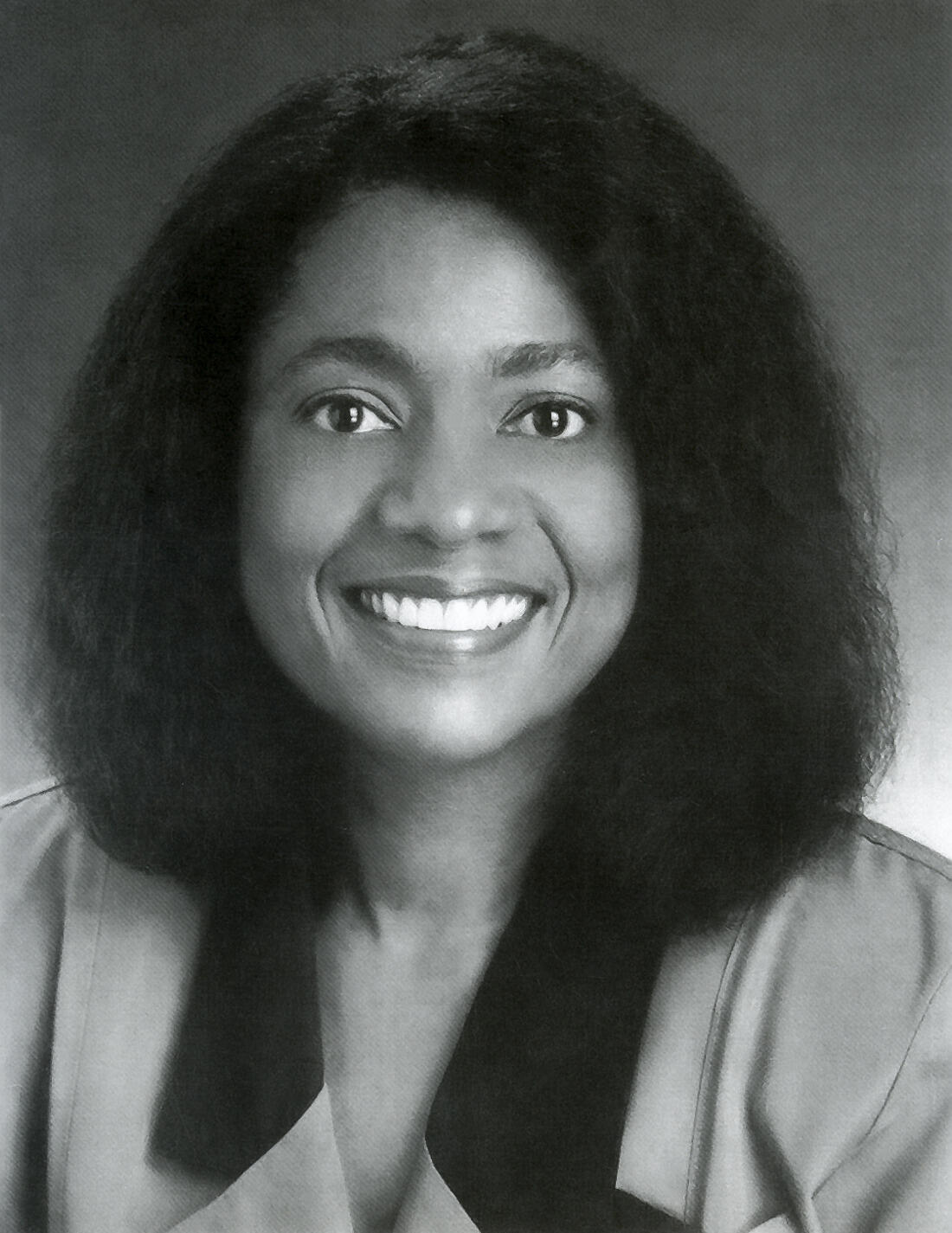
“I wouldn’t exchange teaching for anything,” Bush said. “It’s a great feeling to help students realize their talents. And the arts are important in our schools. They do so much good.”
All the while, Bush kept acting, a love that has hooked her since her debut appearance in a third-grade play. She has been a regular on local stages, particularly in works for the Barksdale Theatre, and had her own production company for a while. She also has appeared in a number of films, including “Ironclads,” “The Vernon Johns Story,” “The Patriot” and “Once Upon a Time … When We Were Colored,” among others. Bush today works not only in film and TV — she is currently serving as an extra on the AMC series “Turn” — but as an actress and voiceover artist in corporate videos and other productions. Her work in that realm includes playing the part of Rosa Parks for a video about the civil rights giant’s life that airs at the Civil Rights Museum in Memphis, Tennessee.
Looking back today, Bush sees her time at RPI as life-changing. She arrived at the school with the goal of becoming a better actress and earning a college degree. She accomplished both, all while making a little history and becoming a permanent part of VCU lore.
“You just never know,” Bush said. “You set out with goals and aspirations, but a lot of things happen that you don’t expect to happen. Sometimes they can be great.”
Images from Postscript and Cobblestone courtesy of VCU Libraries Special Collections & Archives.
Subscribe for free to the VCU News email newsletter at http://newsletter.news.vcu.edu/ and receive a selection of stories, videos, photos, news clips and event listings in your inbox every Monday and Thursday.
Subscribe to VCU News
Subscribe to VCU News at newsletter.vcu.edu and receive a selection of stories, videos, photos, news clips and event listings in your inbox.













